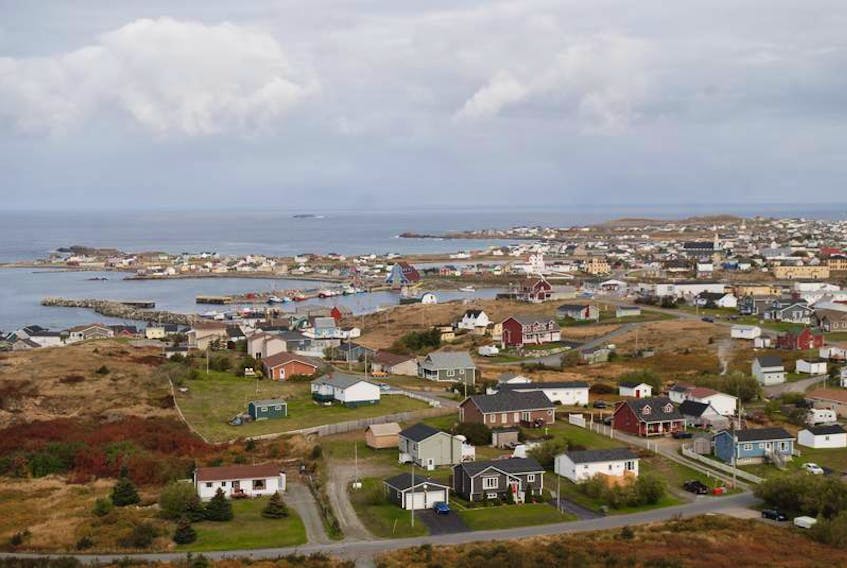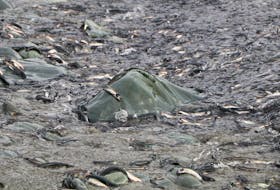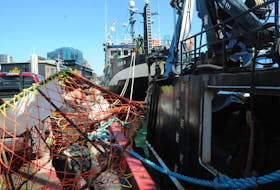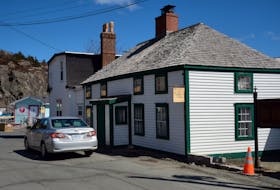It’s just a small town, population 3,455 and operating on a municipal budget of $3.1 million, but when times got tough for business owners in Bonavista in 2020, the town council decided to give them a bit of a break.
In October, the town announced a tax holiday to businesses that didn’t open at all in 2020.
Mayor John Norman told SaltWire Network it was a tough year for everyone in the tourism business.
Usually Bonavista is a mecca for out-of-province visitors, as part of the Discovery Trail region — among the most-visited regions in the province from May to October.
This year, however, the out-of-province travellers didn’t come and the staycationers were not plentiful enough to make up for the losses.
Norman said the town felt it had to do something to help those businesses.
“We felt that by just giving them that little bit of a tax break it could increase their chances for survival,” he said.
Other businesses that normally operate year-round, like local diners and beauty salons, also had to shut down for several weeks at the beginning of the pandemic to follow provincial health orders.
For those businesses, the town figured it was only fair to offer a 50 per cent reduction in taxes, said Norman.
CALCULATING THE COSTS

Sheila Fitzgerald, president of Municipalities Newfoundland and Labrador (MNL), said about three-quarters of towns in the province made some changes to business tax collection for 2020, but not all offered discounts or tax holidays.
The MNL conducted a survey of some of its members in August.
Based on that research, said Fitzgerald, 34 per cent of municipalities surveyed offered a tax deferral extension, giving businesses more time to pay their 2020 taxes.
“About 75 per cent of those interviewed indicated they had made changes to business taxes because of COVID, things like tax reductions, discounts or deferrals and delayed payment plans.”
And there were some creative solutions.
“One town offered a tax exemption for up to two months, to a maximum of $2,000, for example,” she said.
In Nova Scotia, the municipal revenue losses caused by COVID were pegged at $66.5 million, with transit revenue losses alone accounting for $23 million, according to data collected by the Nova Scotia Federation of Municipalities (NSFM) in spring 2020.
“One of the first things we realized when COVID hit is we knew our businesses and residents would have a hard time paying business and property taxes,” said NSFM president Emily Lutz.
FINDING RELIEF

Working with municipalities across Nova Scotia “for hours and hours,” Lutz said the NSFM “came up with a plan for tax relief for both homeowners and businesses.”
The federation negotiated a low-interest $380 million loan program for municipalities to access, with $171 million expected to be used specifically for business and commercial property taxes.
Lutz said not all municipalities took advantage of that loan program but, “We do know that $200 million of that $380 million was committed.”
The NSFM also partnered with the Association of Municipal Administrations of Nova Scotia (AMANS) to design a template for a Municipal Property Tax Financing Program for homeowners and small businesses, which many municipalities adopted.
Under that program, anyone who owned residential property, taxable commercial property, or was a registered tourism operator under the Tourist Accommodations Registration Act could qualify for the program.
If approved under the program, their property tax payments would be spread out over 30 months, with a low interest rate of 1.35 per cent applied to monthly payments. In addition, the first six payments would be no higher than $25 per month.
However, not all municipalities participated and very few taxpayers applied to the program, said a spokesperson for the NSFM.
In Prince Edward Island, business taxation is handled by the provincial government. In December, the province announced that as of Jan. 1, 2021, it would reduce small business tax rates by two to three per cent for the 2020-21 taxation year.
Finance Minister Darlene Compton said in a news release that COVID has greatly impacted the island’s business community and the tax reduction will help as the pandemic situation continues.
Across Atlantic Canada, the Safe Restart Program announced by Ottawa in July aided towns through COVID.
Lutz said the funding of $67.5 million for municipalities in Nova Scotia helped buffer the revenue losses and the cost of COVID.
The purchase of personal protective equipment, the installation of PlexiglassTM service kiosks, and other health and safety measures, cost municipalities in that province over $3 million.
Prince Edward Island received $46.1 million, with $8.6 million earmarked for municipalities.
Municipalities in New Brunswick projected losses of $17.5 million by the end of 2020, based on a survey of 104 towns, according to the Union of Municipalities of New Brunswick on its website.
However, according to a report by CBC in December, only half of the $41.1 million was leveraged.
Any money that is left over will be distributed to all 104 towns — based on their population — New Brunswick’s local government minister, Daniel Allain, told CBC.
“Depending on the final amount, the giveaway of leftover funds could mean January payments of up to $3 million each for Moncton and Saint John, and … $8,000 apiece for villages like Meductic and Alma, New Brunswick’s smallest municipalities,” the CBC report stated.
In Newfoundland and Labrador the fund provided $27.5 million for municipalities, distributed based on population.
Even with this help, however, not all municipalities — especially those with lower populations and smaller budgets — were able to offer tax breaks.
“COVID has been hard on everybody (and) some municipalities had a little more wiggle room than others,” said MNL president Fitzgerald. “Some towns were able to do a little more than others (to help local businesses) and some weren’t able to do anything to help because they had enough trouble paying their own bills,” she said.
She said there’s still uncertainty on the impact of a second wave of COVID on municipal finances.
Many councils will have to be very conservative in terms of money management as the pandemic continues heading into 2021, she said.
THE SECOND WAVE

Bonavista’s mayor says his town has been financially fortunate over the last few years.
“During my term of office (since 2017), we’ve had 51 new businesses opening in Bonavista, including light manufacturing, export, accommodations, service and tourism,” he said.
That growth has provided revenue increases year over year and helped the town maintain a healthy debt-to-service ratio of about 11 to 12 per cent over the past couple of years. That means the town only has to pay 12 cents against its debt from every dollar it collects in revenue.
The town received a little over $200,000 from the federal Safe Restart Program.
All of this together, said Norman, gave the town the wiggle room it needed to offer the tax holiday and tax reduction for 2020.
He said the council simply took the view that it needed to do something to give businesses a fighting chance to survive the financial toll of COVID-19.
As the pandemic lingers into 2021, with continued uncertainty around the tourism season for this summer, Norman said the council has not determined whether it can offer the same breaks for this year.
“We are open to discussion,” he said. “It may not be the exact same thing we did this year, but if we are in a similar situation (with COVID), then we will have to consider some sort of support for local businesses.”









